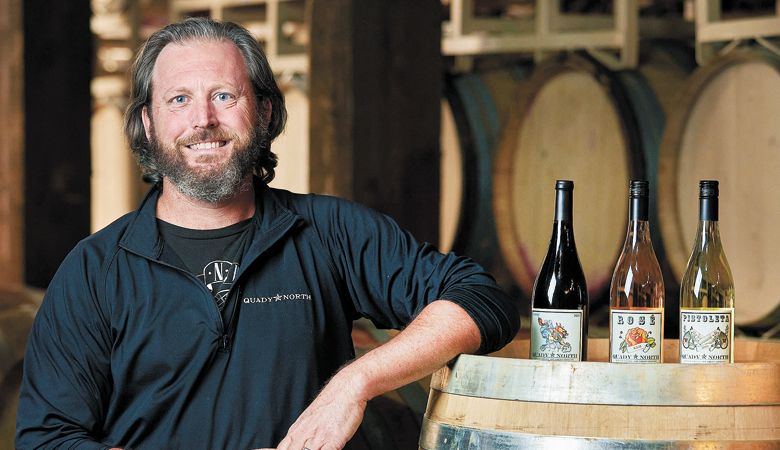Q&A: Herb Quady
Winemaker, grower, leader
Herb Quady grew up on the family winery, Quady North, in Central California with a compulsory love for Muscat, but after an accidental exposure to the world of Rhône varieties at the hand of Randall Graham, he grew obsessed with the idea of making table wines. After earning a winemaking degree at Fresno State, he eventually moved to Southern Oregon. While working as the winemaker for Troon Vineyard, Herb and wife Meloney founded Quady North in 2006.
What was it like growing up in the wine industry?
HQ: My parents started their winery (Quady Winery) in 1975. They were really contemporaries of a lot of other California wine pioneers. I’ve thought a lot about what I picked up from them, and I think there were a lot of things that I learned from example. I think the most valuable thing was the values of the industry. Winegrowers always treated each other with hospitality and sought to help each other when they could. I also learned how hard it is to start a winery from scratch. It takes incredible effort and more than a little luck.
What brought you from California to Oregon?
HQ: I was looking for a new opportunity in the industry, as well as a place that would be good to raise a family. We were living in the Central Valley, and my daughter, Margaux, was only three. She had terrible asthma. Our pediatrician blamed the air in the Valley, which had a lot of dust and particulates. I said, “You mean, if we move somewhere else, her asthma will get better?” He said, “Oh yes, probably.” That made for a pretty easy decision.
I was looking along the California coast; then a friend connected me with someone who was starting a vineyard in Southern Oregon. I scored an interview, but before I came up, I researched the area and found that it shared all these common geological and climatic similarities with other great wine regions of the world, and yet, it was barely known. I thought it would be a really interesting challenge, to go to a place that was just getting discovered.
Why Syrah?
HQ: If there is one variety that consistently makes delicious wine every year in Southern Oregon, it’s Syrah. It has this rare combination of being relatively easy to grow while also really showcasing the character of the site on which it’s grown. I always loved Syrah, but it was my observations during my first vintages in Southern Oregon that led me to specialize in it. I thought, this is different than but possibly as good as Syrah grown in the other great regions of the world.
If you could make a wine from a grape you don’t currently have access to, what would it be?
HQ: My favorite variety is Mourvèdre. However, it needs a very particular set of growing conditions to achieve the concentration and character that we see in Bandol, for example. We are working with one vineyard, small, nearly dry-farmed, head-trained, in the Sams Valley that is only planted to Mourvèdre. This year was our first harvest from that vineyard. It might take another 30 years or so, but there’s potential there.
Dessert wine is your family’s legacy. Any favorite dessert wines in Oregon?
HQ: My friend, Jesse Skiles, used to make a Port-style wine called “Post Feast.” We always loved the name. A friend of mine, Michael McAuley, once made a small lot of Port-style wine from Primitivo. I thought it was one of the better examples that I’d tried in Oregon. We make one fortified wine under the Quady North label, which is infused with holiday spices. We call it the “Spirit of Solstice,” and it is always a favorite.
What do you see as the future of Southern Oregon wine? (varietals, tourism, etc.)
HQ: The landscape is complex here, both literally and figuratively. One of the more exciting developments, in my opinion, is the concentration of environmentally progressive wineries being recognized for quality wines made from Rhône varieties. The two most consistently delicious wines that I see here, across many different wineries, are the red and white Rhône blends. I would love to see more vineyards and wineries commit to farming sustainably. I believe that is an essential part of our future success.











